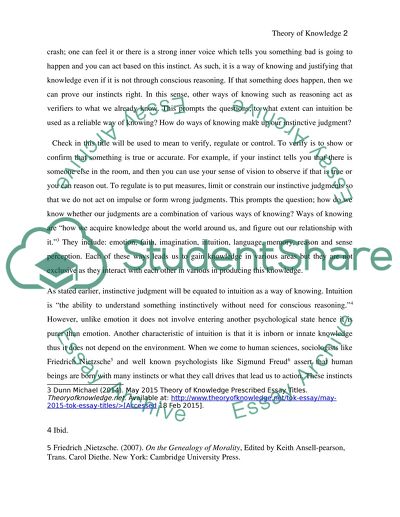Cite this document
(Ways of Knowing Act and Instinctive Judgments Essay Example | Topics and Well Written Essays - 2000 words, n.d.)
Ways of Knowing Act and Instinctive Judgments Essay Example | Topics and Well Written Essays - 2000 words. https://studentshare.org/philosophy/1678500-ways-of-knowing-act-and-instinctive-judgments
Ways of Knowing Act and Instinctive Judgments Essay Example | Topics and Well Written Essays - 2000 words. https://studentshare.org/philosophy/1678500-ways-of-knowing-act-and-instinctive-judgments
(Ways of Knowing Act and Instinctive Judgments Essay Example | Topics and Well Written Essays - 2000 Words)
Ways of Knowing Act and Instinctive Judgments Essay Example | Topics and Well Written Essays - 2000 Words. https://studentshare.org/philosophy/1678500-ways-of-knowing-act-and-instinctive-judgments.
Ways of Knowing Act and Instinctive Judgments Essay Example | Topics and Well Written Essays - 2000 Words. https://studentshare.org/philosophy/1678500-ways-of-knowing-act-and-instinctive-judgments.
“Ways of Knowing Act and Instinctive Judgments Essay Example | Topics and Well Written Essays - 2000 Words”. https://studentshare.org/philosophy/1678500-ways-of-knowing-act-and-instinctive-judgments.


